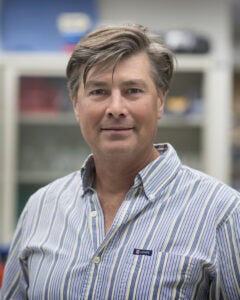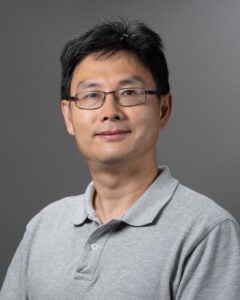Molecular Genetics & Epigenetics
Cancer is a disease that results from the accumulation of genetic and epigenetic changes, which drive aberrant gene expression and cell cycle progression. The Molecular Genetics and Epigenetics Program (GEN) brings together experts in genome stability, cell cycle, genomics, and epigenetics to form a strong base for a broad understanding of the carcinogenic state.
In addition, GEN has an extremely strong computational community to not only harvest the tremendous amounts of genomic data that is available but, more importantly, build new tools to use it to its fullest capacity.
GEN Program Aims
To accomplish its goals, the research of the GEN program is organized around three specific aims:
- Aim 1: Genomic instability in cancer
- Aim 2: Transcriptional and epigenetic dysregulation in cancer
- Aim 3: Emerging roles of RNA in Cancer
The GEN program is led by:
-
P. Todd Stukenberg, PhD
Dr. Stukenberg is a leader in the replication and cell cycle fields who has focused more recently on the role of microRNAs in tumorigenesis.
-
Hui Li, PhD
Dr. Li is an expert in trans-splicing as a novel regulatory mechanism in cancer.


